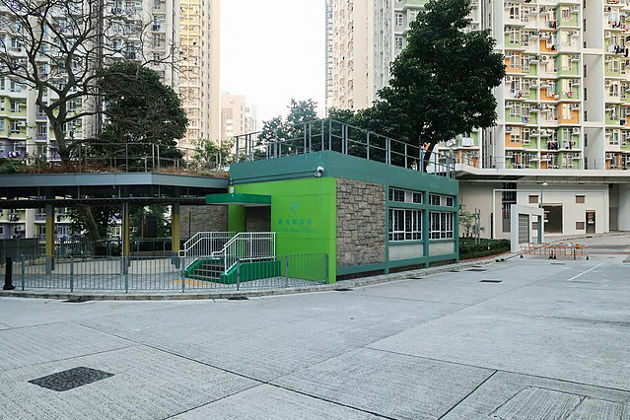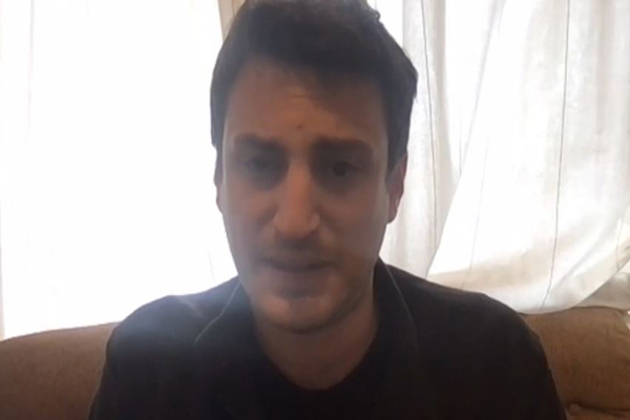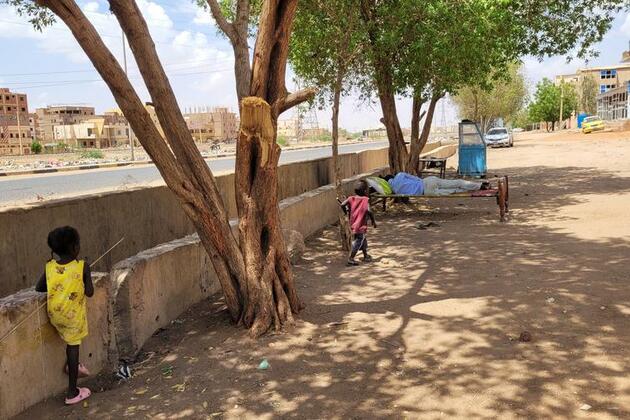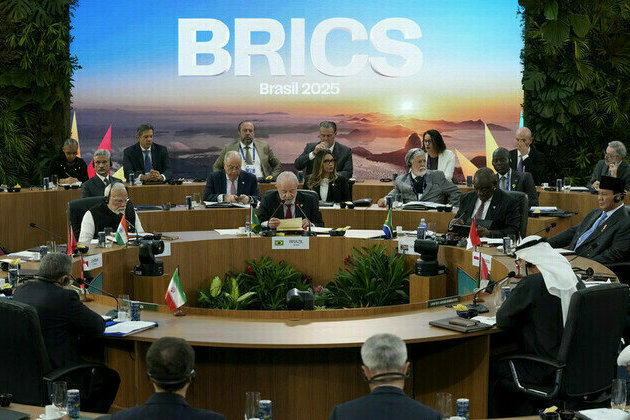OPINION | Who are the rights enshrined in the Constitution for?
News24
02 Aug 2020, 15:41 GMT+10
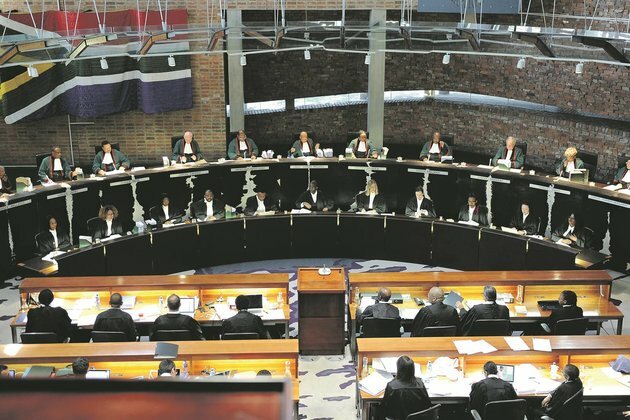
.
The prevalence of illegal evictions is one of these normalised social injustices. On the 1 July 2020, a video of a naked Bulelani Qolani being violently evicted from his home circulated the internet. The video shows the City of Cape Town's Law Enforcement dragging the 28-year-old man, who is naked and in full public view.
The City of Cape Town continues to conduct these illegal evictions despite the Disaster Management Act's prohibition of evictions during lockdown.
Apartheid's spatial planning and racist land and property laws have left many black people displaced and dispossessed. These laws entrenched socio-economic inequality through the common law. Legislation favoured property rights, thus private landowners could vindicate these rights through eviction processes without consideration of the occupiers' circumstances. Spatial planning meant that majority black people were deprived from formal access to land and housing and were relegated to the homelands.
Because of a host of legislation such as the Natives Land Act 27 of 1913, Group Areas Act 41 of 1950 and the Prevention of Illegal Squatting Act 52 of 1951; the majority of black people still find themselves on the periphery of human rights.
The residue from racialised land and property laws has left an unshakeable stench which has resulted in the right to housing being one of the most litigated rights. Today most black people still find themselves in undesirable living conditions, waiting for the longstanding promise of service delivery.
Disparities
The disparities between people's lived realities and the Constitution's promise of human rights are inescapable.
Section 26(1) provides that everyone has a right to have access to adequate housing and that the State must take reasonable legislative and other measures within its available resources to achieve the progressive realisation of the right.
This momentous right is a preventative measure against the system of laws that sought to ostracise black people from their own country.
Section 26(2) indicates that the State must take reasonable legislative and other measures within its available resources to progressively realise this right.
All arbitrary evictions are prohibited by section 26(3) and no one may be evicted or have their home demolished without a court order made after considering all the relevant circumstances. The Prevention of Illegal Eviction from and Unlawful Occupation of Land Act (PIE) was enacted to give effect to section 26(3). PIE protects against the eviction of unlawful occupiers living on both privately and publicly owned land.
Despite these rights and an array of case law in support, poverty continues to be criminalised in South Africa as communities and individuals are frequently and violently evicted from places they call home.
The right to housing is an all-encompassing right.
As per , housing is about more than bricks and mortar. The right is informed and informs other rights such as dignity, privacy, safety and security and water. More than half of South Africa's population lives in poverty and it is probable that the housing crisis is at the heart of this destitution.
The rights exist and the legal jurisprudence is rich, but it often fails to translate into people's lived experiences.
In an article by Tshepo Madlingozi titled he eloquently states that poor black people fall on the other side of the promise of a new South Africa. Informed by a report by Abahlali Basemjondolo, Madlingozi refers to South Africans who have been excluded from the miracle of the transition as "The Forgotten". The Forgotten are excluded from reaping the benefits of basic human rights despite the legal jurisprudence which continues to develop in their name.
Grootboom judgment
My first introduction to the Constitution and Constitutional law was in second year in my Public Policy and Administration class when a student was explaining the separation of powers doctrine and used the judgment as an example of a case where the Court reminds the government of its obligation to provide adequate housing, as per section 26 of the Constitution.
The case concerns Irene Grootboom who brought the application on behalf of 510 children and 390 adults who were rendered homeless when they were evicted from their informal homes situated on private land. The application was for an order which required government to provide the respondents with adequate basic shelter or housing until they obtained permanent accommodation.
True to the circuitous nature of the legal system; Grootboom died eight years after the judgment, still waiting for reasonable accommodation from the State. Today the judgment remains a powerful precedent for communities under threat of eviction as it implores government to be consistent with its constitutional obligations to provide adequate housing. However, the case's namesake died without attaining that socio-economic right. The case is an example of how the legal jurisprudence is enriched in the name of The Forgotten - who unfortunately never see beyond their deplorable living conditions.
The developing legal jurisprudence often conceals the fact that black South Africans are still confronted with the same issues which trammelled them during the merciless years of apartheid. Black people still bear the brunt of normalised social injustices and the promise of the Constitution is frequently offered as a panacea. It has been 26 years since apartheid property and land laws were abolished but the stain of displacement still lingers. Black people still exist on the periphery of belonging.
A day after Qolani's eviction video circulated, he shared the following words with a journalist regarding the matter: .
These fervent words lament the history of dispossession suffered by black people at the hands of a merciless State. It all comes down to the fight for dignity and
a fight for the attainment of social justice for who live in it.
 Share
Share
 Tweet
Tweet
 Share
Share
 Flip
Flip
 Email
Email
Watch latest videos
Subscribe and Follow
Get a daily dose of Zimbabwe Star news through our daily email, its complimentary and keeps you fully up to date with world and business news as well.
News RELEASES
Publish news of your business, community or sports group, personnel appointments, major event and more by submitting a news release to Zimbabwe Star.
More InformationInternational
SectionGaza War sucking life out of an Israeli generation
In the past month alone, 23 Israeli soldiers have been killed in Gaza—three more than the number of remaining living hostages held...
Faulty IT system at heart of UK Post Office scandal, says report
LONDON, U.K.: At least 13 people are believed to have taken their own lives as a result of the U.K.'s Post Office scandal, in which...
Travelers can now keep shoes on at TSA checkpoints
WASHINGTON, D.C.: Travelers at U.S. airports will no longer need to remove their shoes during security screenings, Department of Homeland...
Rubio impersonator used AI to reach officials via Signal: cable
WASHINGTON, D.C.: An elaborate impersonation scheme involving artificial intelligence targeted senior U.S. and foreign officials in...
Warsaw responds to migration pressure with new border controls
SLUBICE, Poland: Poland reinstated border controls with Germany and Lithuania on July 7, following Germany's earlier reintroduction...
Deadly July 4 flash floods renew alarm over NWS staffing shortages
WASHINGTON, D.C.: After months of warnings from former federal officials and weather experts, the deadly flash floods that struck the...
Africa
Section'If you want to do comedy, resign', says BJP MP Praveen Khandelwal, criticising CM Bhagwant Mann's comment on PM Modi
New Delhi [India], July 11 (ANI): Bharatiya Janata Party (BJP) MP Praveen Khandelwal criticised the comments made Punjab Chief Minister...
Ireland batter Peter Moor announces retirement from International cricket
New Delhi [India], July 11 (ANI): Ireland batter Peter Moor has announced his retirement from international cricket at the age of 35...
Trump announces 35 per cent tariffs on goods imported from Canada
By Reena Bhardwaj Washington, DC [[US], July 11 (ANI): US President Donald Trump on Thursday (local time) announced that the US will...
"Very bad sign of things escalating in Canada, Carney's first major test on security": Canadian journalist on Kap's Cafe attack
Vancouver [Canada], July 11 (ANI): Canadian journalist Daniel Bordman called the attack on a cafe owned by comedian Kapil Sharma a...
A glimpse into Sudanese life amid scorching summer heat
KHARTOUM, July 10 (Xinhua) -- It was 2 p.m. in a displacement camp on the outskirts of Port Sudan, where the relentless sun had already...
What just happened in Rio should terrify the West
The 17th BRICS summit was more than a photo op. It was a coordinated rejection of Western power and a declaration of intent A few...


